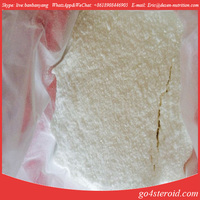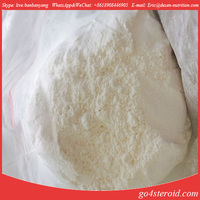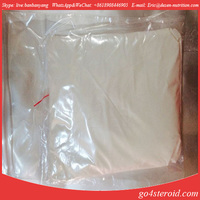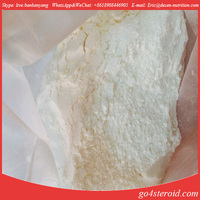Melatonine CAS 73-31-4 Medical supplement
Product Quick Detail
- Place Of Origin
- China
- Minimum Order
- 1
- Packaging
- Exquisite packaging
- Delivery
- 3-7 work days
Specifications
Melatonin, also known as N-acetyl-5-methoxy tryptamine, is a hormone that is produced by the pineal gland in animals and regulates sleep and wakefulness. Melatonin is also produced in plants where it functions as a first line of defense against oxidative stress.
In animals, melatonin is involved in the entrainment (synchronization) of the circadian rhythms including sleep-wake timing, blood pressure regulation, seasonal reproduction, and many others. Many of its biological effects in animals are produced through activation of melatonin receptors, while others are due to its role as an antioxidant, with a particular role in the protection of nuclear and mitochondrial DNA.
Medical uses
A bottle of melatonin tablets: additionally, melatonin is available in timed-release and in liquid forms.
Sleep disorders
Melatonin has been studied for insomnia in the elderly. Short-term treatment (up to three months) of prolonged-release melatonin was found to be effective and safe in improving sleep latency, sleep quality, and daytime alertness.
A 2016 review found no evidence that melatonin helped sleep problems in people with moderate to severe dementia due to Alzheimer's disease.
Evidence for use of melatonin as a treatment for insomnia is, as of 2015, insufficient; low-quality evidence indicates it may speed the onset of sleep by 6 minutes. A 2014 review found minimal evidence for efficacy in shift work.
Headaches
Tentative evidence shows melatonin may help reduce some types of headaches including cluster headaches.
Cancer
A 2013 review by the National Cancer Institutes found evidence for use to be inconclusive.A 2005 review of unblinded clinical trials found a reduced rate of death, but that blinded and independently conducted randomized controlled trials are needed.
Protection from radiation
Both animal and human studies have shown melatonin to protect against radiation-induced cellular damage. Melatonin and its metabolites protect organisms from oxidative stress by scavenging reactive oxygen species which are generated during exposure. Nearly 70% of biological damage caused by ionizing radiation is estimated to be attributable to the creation of free radicals, especially the hydroxyl radical that attacks DNA, proteins, and cellular membranes. Melatonin has been described as a broadly protective, readily available, and orally self-administered antioxidant that is without major known side effects.
Psychiatry
Melatonin might improve sleep in autistic people. Children with autism have abnormal melatonin pathways and below-average physiological levels of melatonin.Melatonin supplementation has been shown to improve sleep duration, sleep onset latency, and night-time awakenings.However, many studies on melatonin and autism rely on self-reported levels of improvement and more rigorous research is needed.
- Country: China (Mainland)
- Business Type: Manufacturer,Trading Company
- Market:Americas,Europe,Oceania
- Founded Year:2010
- Address:
- Contact:ava yang
Other products from Hengyang Desen Manufacturing&Trading co., LTD.
Relate products of Melatonine CAS 73-31-4 Medical supplement
Product name: melatonin powder Appearance: white powder Specification: 99% min Test Method: HPLC CAS No.: 73-31-4 EINECS No.: 200-797-7 Melatonin is a hormone made by the pineal gland, a small gland in the brain. Melatonin helps control your sleep and wake cycles. Very small ...
Health Care Product Anti-Aging Medication Melatonin for Well Sleep Product Name:Melatonine CAS No.:73-31-4 EINECS:200-797-7 Molecular Formula: C13N2H16O2 Molecular Weight:232.28 Assay:99% Appearance:White Cystalline Powder Usage:sleep aid in the treatment of some sleep ...
CAS 73-31-4 Melatonine Product Name:Melatonine Alias:Melatonin CAS NO.:73-31-4 EINECS:200-797-7 Molecular Formula:C13H16N2O2 Molecular Weight:232.28 Appearnace:White Powder Grade:Food Grade Sleep Aid The hormone melatonin plays a role in your natural sleep-wake cycle. Natural ...














